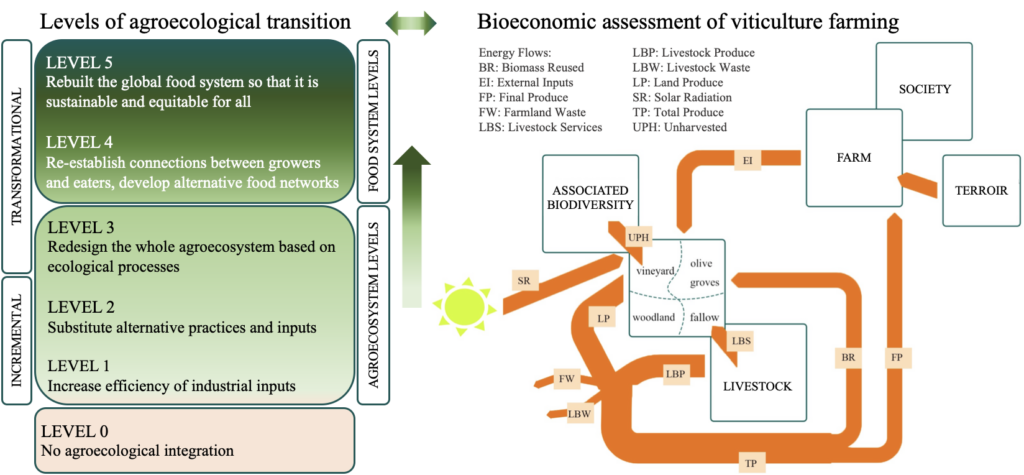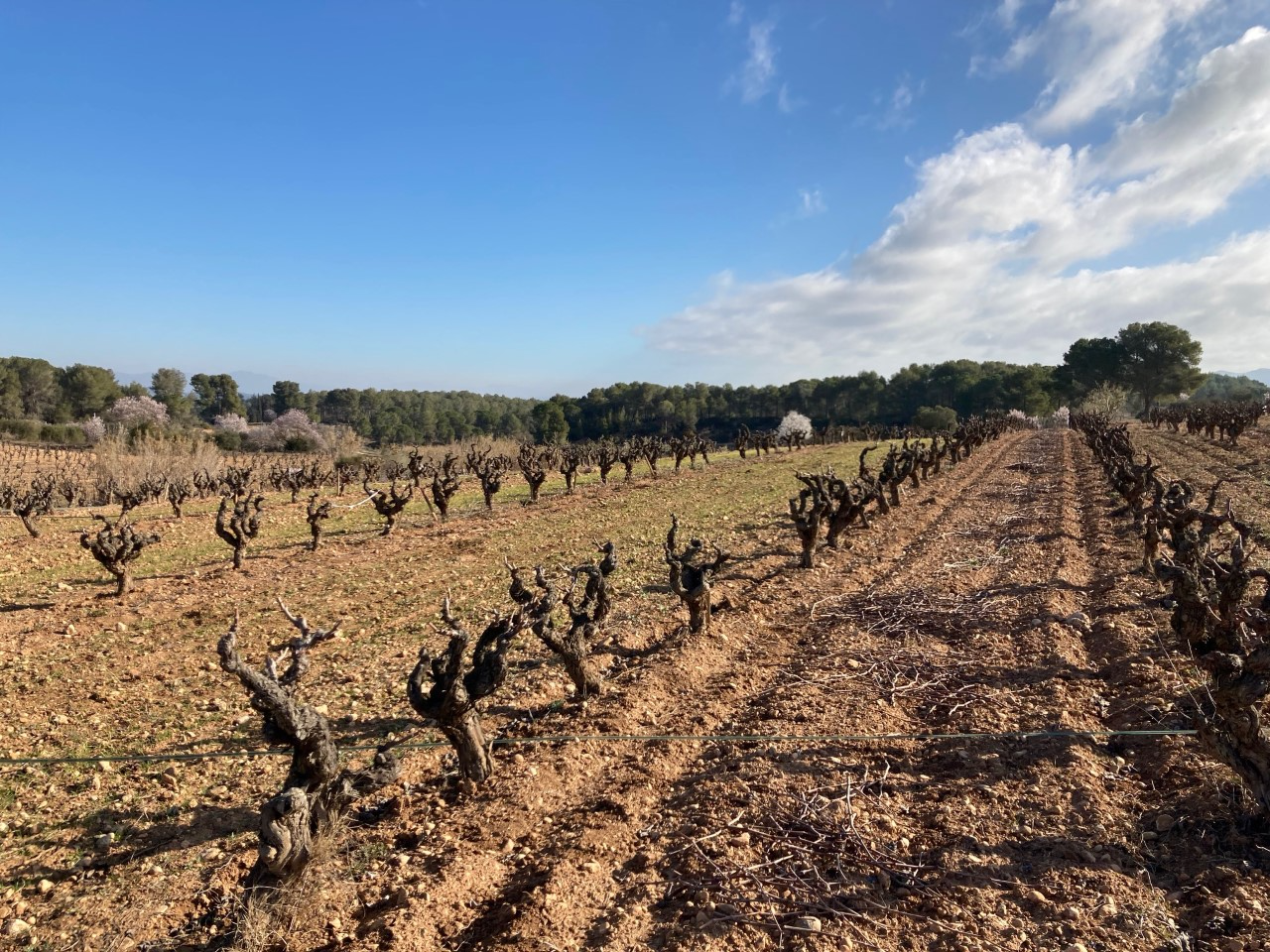Agroecological viticulture is more energy efficient with a similar economic gain and also better distributed
New LET study about the agroecological transition in the Mediterranean with a bioeconomic evaluation of viticulture
Transformations in the agri-food system since the early 19th century have led to an unprecedented increase in food production. However, the structure of this system has generated many negative environmental and social impacts that threaten the sustainability at the local, regional and global scale. This paper presents a best practice viticulture farming that is in an advanced level of agroecological transition in the Mediterranean. The results show that the energy efficiency of this agroecosystem is greater to conventional farms in the region, while generating similar financial returns but more equally distributed than the big agro-industrial companies in the sector.
Based on this best practice case study, we provide several methodological and practical insights on the energy balance of the farm system, supplemented by data on the value-added distribution from wholesaler selling back to the industrial winemaking and vine-growing incomes, and the final financial returns of the company. The results highlight the need of multifactorial analyses that contribute to a systemic perspective on the synergic elements and leverage points for scaling-up the agroecological transition of Mediterranean viticulture.
It is necessary an agroecological transition that leads to an agri-food model that is aware of the planetary boundaries and guarantees the reproduction of human and all other forms of life. Agroecology is crucial for the Mediterranean, where the negative environmental and social impacts of industrial agriculture are particularly evident.

Consult the paper.

